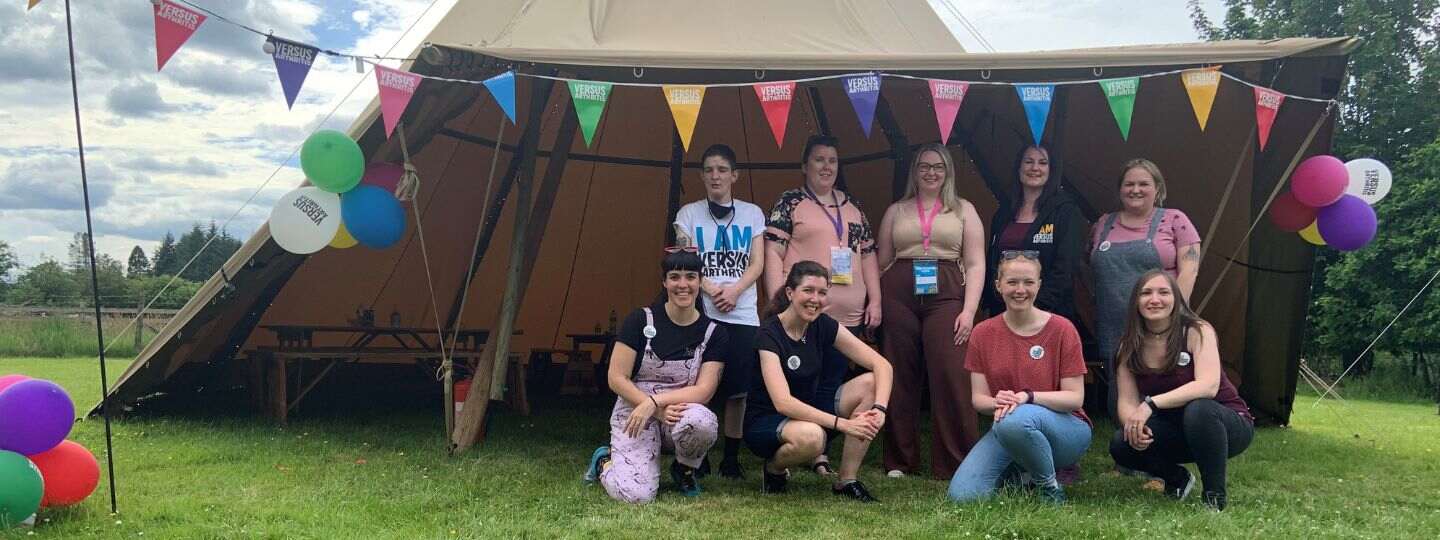
Young people
No one understands what it's like to be a young person with arthritis more than you do. At times, we know that it can be nerve-wracking, confusing, or even a bit lonely.
But we also know that it's possible to live well with arthritis - and that having the right advice and support can make a massive difference.
So, here is your go-to place to learn about living with arthritis as a young person.
Whether you want to learn how to better manage your condition, read real-life experiences from young people with arthritis, or want to join some of our jam-packed groups and activities, we're here to help you, every step of the way.
Plus, we've also got plenty of information to help your parent, carer, school and healthcare professionals to better support you.
What is juvenile idiopathic arthritis (JIA)?
If you have swelling in one or more of your joints before you turn 16, you may be diagnosed with Juvenile Idiopathic Arthritis (JIA). Learn more about the condition and how it may affect you.
Managing your symptoms
Pain and fatigue don't have to hold you back from the things you enjoy. Learn how eating healthy, exercising and getting a good night's sleep can make things a little easier.
Living with arthritis
Whether you need advice about studying, hospital visits or even navigating relationships and holidays, here's information and advice to help you live well with arthritis.
Information for parents
It can be worrying if your child has been diagnosed with arthritis. But there's a lot you can do to support them, from helping them to eat healthily to supporting them at school.
Information for teachers
Schools and teachers can do a lot to help young people with arthritis. Find out how you can offer practical and emotional support to students with arthritis.
Information for professionals
Are you a healthcare professional? Want to better diagnose children and young people who are dealing with joint problems? Use our handy musculoskeletal clinical assessment guide.
Do you work in adolescent or young adult rheumatology?
Join the Barbara Ansell National Network for Adolescent Rheumatology (BANNAR), a UK-wide professional network in adolescent and young adult rheumatology research.
How we help young people and families
Living with arthritis can be hard. If you are struggling, you don’t have to do it alone. We’re here for you. Here are just a few ways we can help you and your family
Your Rheum
Your Rheum is a group for 11-24 year olds across the UK with diagnosed rheumatic conditions, where you can advise, input and shape current adolescent and young adult rheumatology research.
Join our Young People's Panel
Want to shape what we do at Versus Arthritis? Join our Young People’s Panel
Getting involved as a young person
Are you a you a young person and want to get involved? Here’s what we’re working on right now, and how you can support our fight against arthritis.

Stories
-
Raising a child who has JIA: Zoe and Mali’s story
Zoe is running the London Marathon for Versus Arthritis this year. Her six-year-old daughter Mali has juvenile idiopathic arthritis (JIA). Zoe tells us what she and her family have been through since Mali’s diagnosis and shares her tips for parents and caregivers of children with arthritis.
-
University and lupus: What Varshi has learnt and her tips for students with arthritis
Varshi, 18, is at university reading medicine. She was diagnosed with lupus four years ago and is on the Versus Arthritis Young People’s Panel. University life hasn’t been easy for Varshi with her condition. Here, Varshi tells us what she has learnt and offers tips and coping mechanisms for other students with arthritis.
-
Supporting children and young people living with arthritis
Our Young People and Families service works tirelessly to provide information, support, as well as jam-packed events for young people under the age of 25. Here Dawn, a Young People and Families Worker at Versus Arthritis, explains how she supports young people in Birmingham Children’s Hospital and the local area.
Related content
-
In your area
Find out what’s going on where you are and how Versus Arthritis offers help and support across the UK as well as latest news from each area.
-
Connect with other young people
Connect with other young people in Northern Ireland, Scotland, Wales and England over public and private social media channels, including ones for parents.
-
Arthritis tracker
Track your arthritis and general health with an easy-to-read summary to give you some hints on what to tell the doctor at your next appointment.